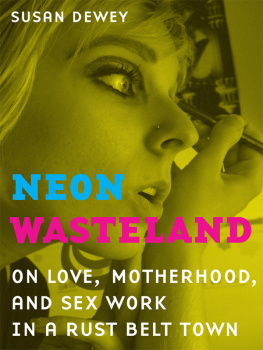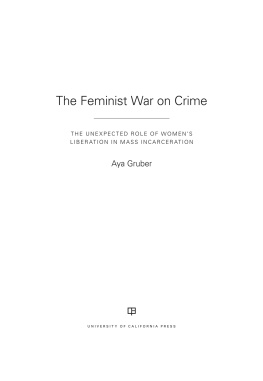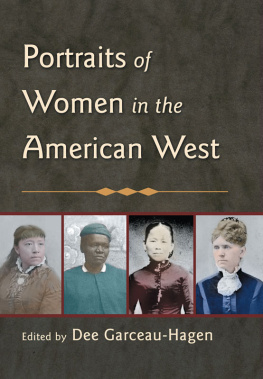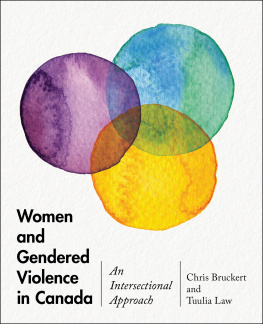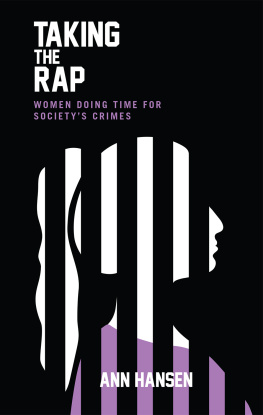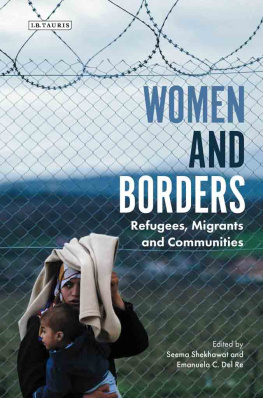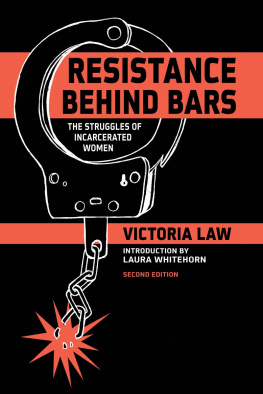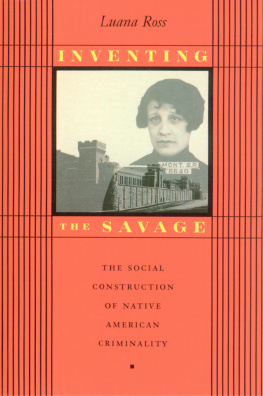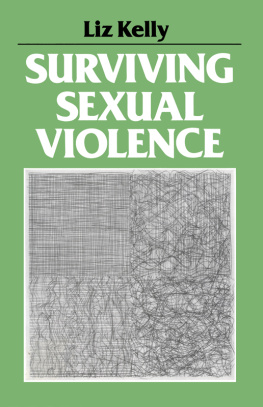NEW YORK UNIVERSITY PRESS
New York
www.nyupress.org
2019 by New York University
All rights reserved
References to Internet websites (URLs) were accurate at the time of writing. Neither the author nor New York University Press is responsible for URLs that may have expired or changed since the manuscript was prepared.
Library of Congress Cataloging-in-Publication Data
Names: Dewey, Susan, author.
Title: Outlaw women : prison, rural violence, and poverty in the American West / Susan Dewey [and four others].
Description: New York : New York University Press, [2019] | Includes bibliographical references and index.
Identifiers: LCCN 2018042920| ISBN 9781479801176 (cl : alk. paper) | ISBN 9781479887439 (pb : alk. paper)
Subjects: LCSH: Women ex-convictsWest (U.S.)Social conditions. | Women prisonersDeinstitutionalizationWest (U.S.) | Female offendersRehabilitationWest (U.S.) | West (U.S.)Rural conditions.
Classification: LCC HV9305.W35 D49 2019 | DDC 364.3/74097809034dc23
LC record available at https://lccn.loc.gov/2018042920
New York University Press books are printed on acid-free paper, and their binding materials are chosen for strength and durability. We strive to use environmentally responsible suppliers and materials to the greatest extent possible in publishing our books.
Manufactured in the United States of America
10 9 8 7 6 5 4 3 2 1
Also available as an ebook
Youre not from around here, surmised an expressionless, deep-voiced local woman in a flannel work shirt as one of us silently counted eighteen different kinds of beef jerky hung alongside a vast array of hunting equipment for sale at the gas station. You workin at the prison? After gauging the silent nod she received in response, she stoically intoned, Every one of them women is in there because of a man. Whether uttered in the small Wyoming town that houses the states only womens prison or as part of national debates on criminal justice reform, such sentiments reflect the fact that many incarcerated women have struggled throughout their lives with poverty and abuse from family members and intimate partners who made them fear for their safety, eroded their self-worth, increased their likelihood of self-medicating with drugs and alcohol, and caused them long-term damage, sometimes in ways that further isolated them from potential sources of social and economic support.
Women in prison have also made choices that deeply hurt others, including their children, friends, and neighbors, thus perpetuating a cycle of violence, harm, and blame that they may or may not have been previously subjected to themselves. Once released from prison, women throughout the United States encounter socio-institutional expectations that generally fail to account for their caregiving obligations to children and others, relegation to the feminized ghetto of low-wage and uninsured service-sector work, and reduced access to credit, all of which are intensified forms of challenges many women without criminal records also face.kinda expect males to screw up, but us women are the ones sposed to hold it all together.
An Architecture of Gendered Violence
This book argues that unique cultural dynamics shape womens experiences of incarceration and release from prison in the rural, predominantly white communities that many Americans still think of as the Wild West. Together, these dynamics comprise an architecture of gendered violence, a theoretical lens that focuses on how addiction and compromised mental health, poverty, fraught relationships, and felony-related discrimination work in tandem with the womens decision making to construct their life worlds. The architecture of gendered violence is a multivalent force that profoundly shapes the lives of currently and formerly incarcerated rural women, many of whom have mightily struggled to make ends meet. This account of Wyoming womens experiences with incarceration and its after-effects is designed to offer clear and concrete suggestions for untangling the dynamic knot that ties so many women to circumstances, relationships, and patterns that figuratively or literally imprison them.
Arguments presented in this book provide a much-needed rural-focused contribution to the extensive body of published research on urban womens gendered pathways to incarceration. On the basis of her study of a New Haven, Connecticut, felony court, criminologist Kathleen Daly originally articulated these pathways as being comprised of strained family relations, limited job skills, substance abuse, compromised mental health, and violent victimization (Daly 1992).
The architecture of gendered violence that comprises the primary pathway to incarceration among the Wyoming women in our study reflects how the suite of concerns facing currently and formerly incarcerated women manifests in a rural context far from the coastal metropolises that dominate the production of discourse and scholarship on mass incarceration and criminal justice reform. The women construe this violence as instrumentally productive of circumstances that result in their incarceration and, like a chronic pathology, continue to stalk them after their release from prison.
Theoretical Frames: Conceptualizing Womens Pathways to Prison from Rural Precarity
Our theoretical-analytical enlistment of the architecture of gendered violence that so powerfully emerged in currently and formerly incarcerated womens accounts of their lives derives primarily from engagement with work pioneered by feminist, rural, and narrative criminologists as well as studies, from a range of academic disciplines, on rural poverty and economic precarity. We hope that naming and disarticulating the specific components of this violence and its operations will provide academics and practitioners with a fuller understanding of how criminalized rural women navigate the considerable constraints that shape their lives both before and after their time in prison. In so doing, we make a contribution to a rich body of existing literature that offers evidence-based assessments of criminal justice policy and practice.
Feminist Criminology
The first criminological studies to incorporate women generally portrayed them as criminal deviants whose innate inferiority made them even more dangerous and unpredictable than their male counterparts (Lombroso & Ferrero 1893 [2004]). Girls and women involved Since at least the widespread social reform initiatives of the Progressive Era (18801920), prevailing criminal justice and social services solutions to addressing womens criminality have focused on changing lawbreaking behavior among the poor and working-class women who, then as now, constituted the majority of jail and prison populations irrespective of gender. Progressive Era criminal justice and social services reformers promoted womens caregiving roles in ways that were largely irrelevant to such women due to their need to work outside the home in order to economically support their families (Agustn 2007).
Such measures originally focused on teaching incarcerated women how to sew, clean, cook, and otherwise prepare them for life as servants to wealthier families or as wives to men who could economically support them (Dodge 2002). In the contemporary era, such solutions focus largely on cognitive approaches due to the prevalence of addictions and other mental health issues among correctional populations, most notably through programming that positions lawbreaking as the product of individual cognitive dysfunction, typically termed criminal thinking (Samenow 1984 [2014]). Yet, critics have pointed out that focusing on individual dysfunction as the cause of crime fails to account for social forces that contribute to higher rates of incarceration among poor and working-class people and people of color relative to their more privileged counterparts (Heitzeg 2015).


